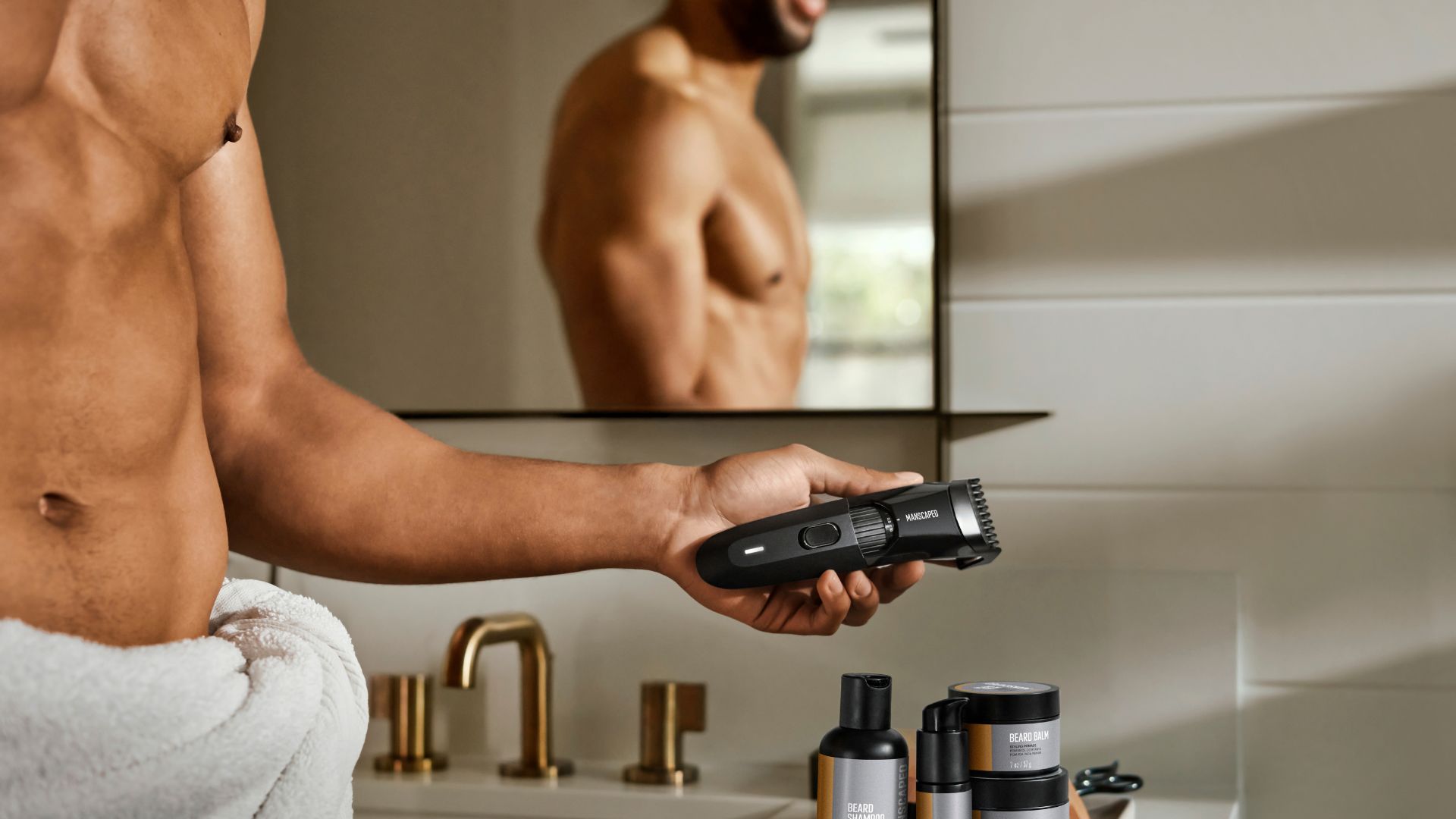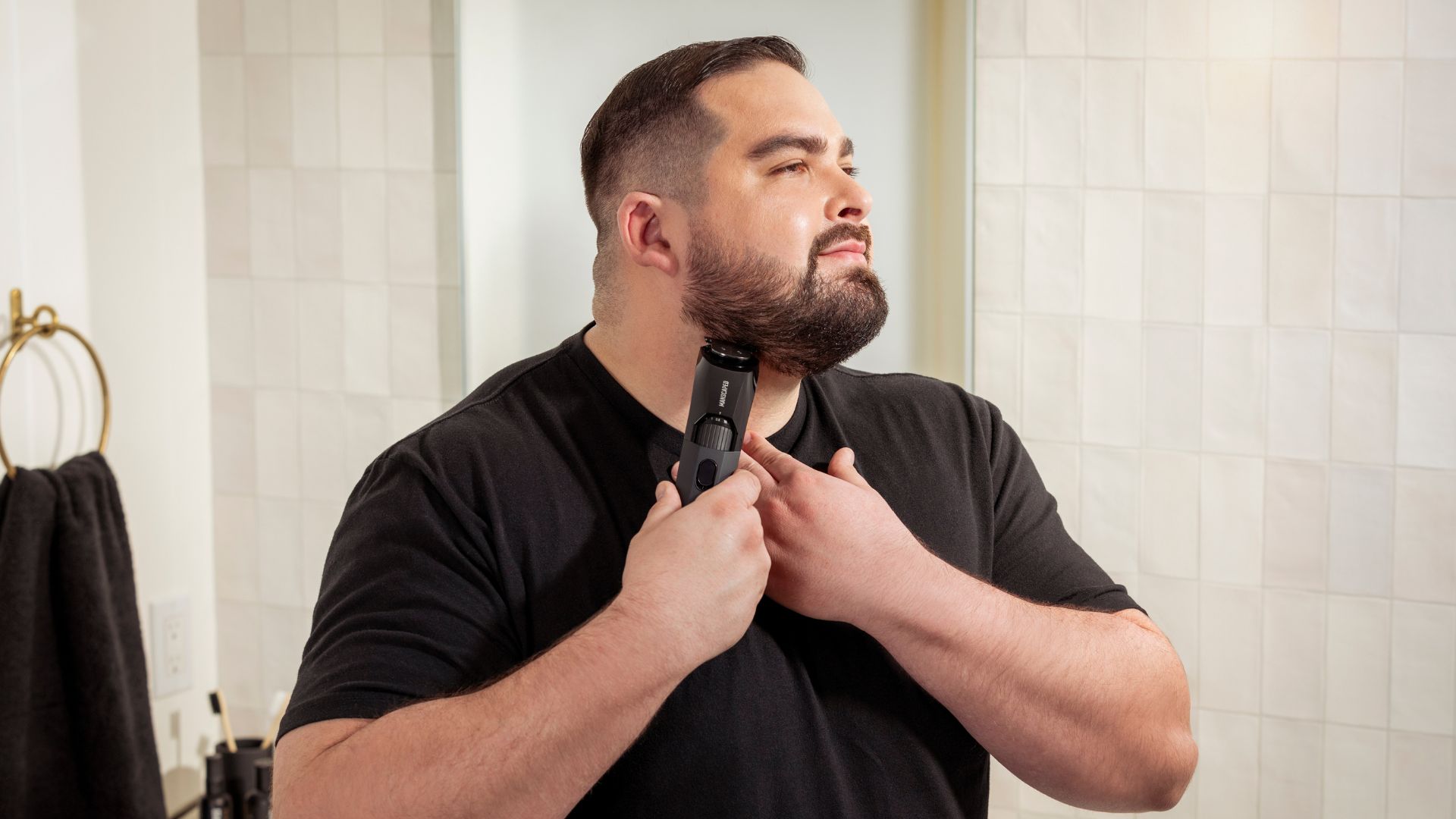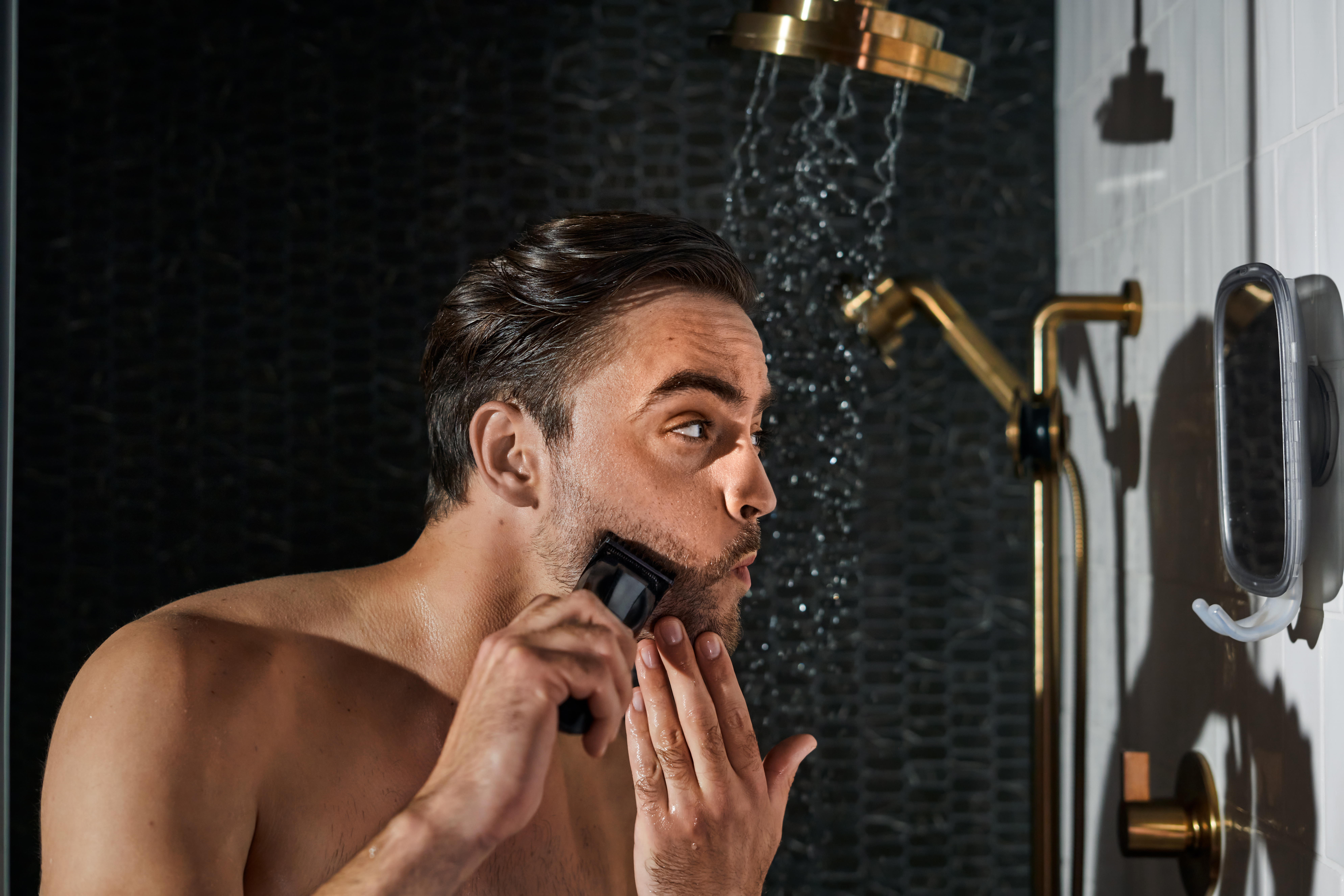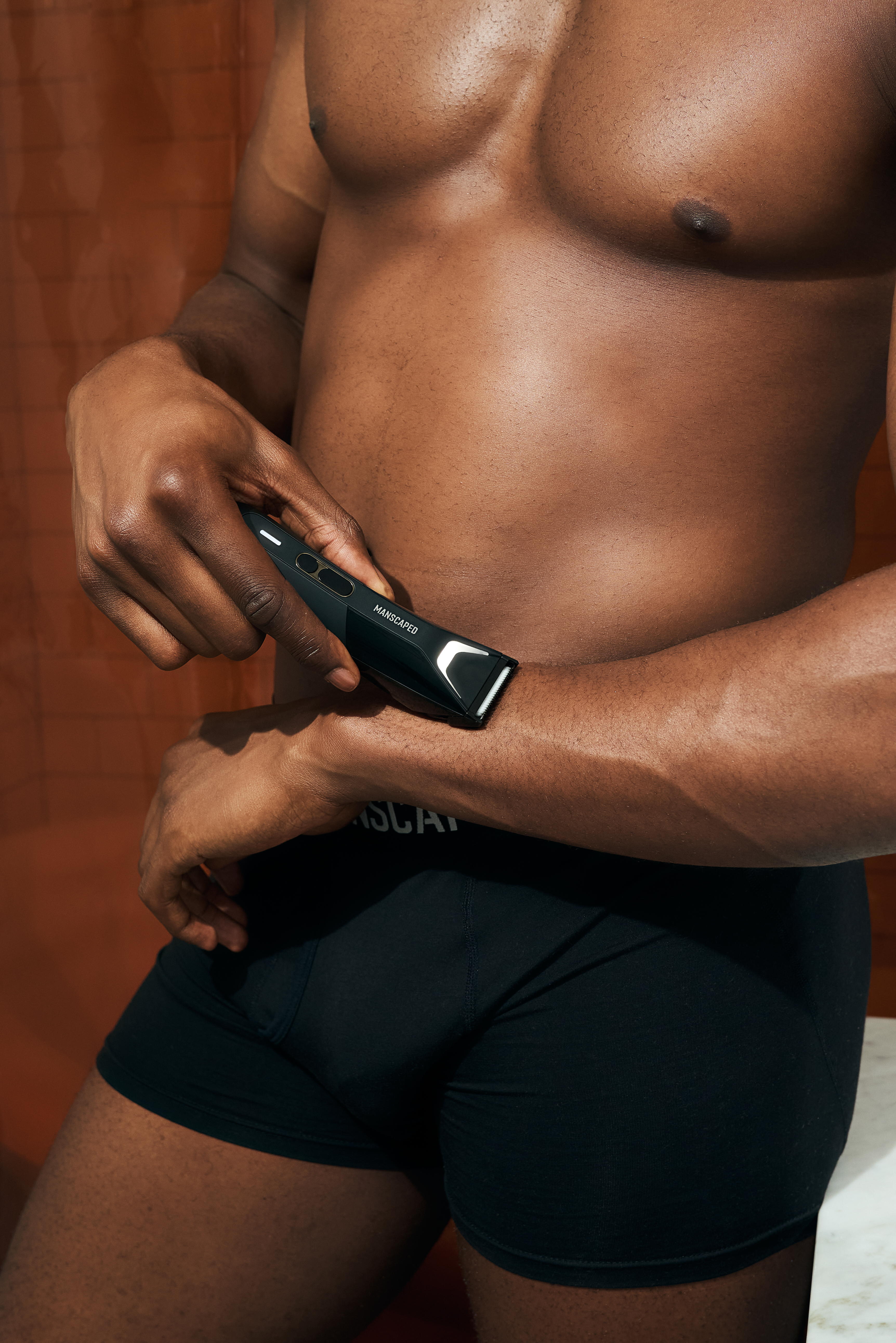
Get exclusive shortlists, celebrity interviews and the best deals on the products you care about, straight to your inbox.
You are now subscribed
Your newsletter sign-up was successful
Here’s a theory, proposed by someone called Charles Darwin. He reckoned that the pursuit of hairlessness - all that shaving and plucking that we do - was one way in which we humans were trying to distance ourselves from our evolutionary ancestors, the apes.
It’s certainly a feeling that runs deep. A survey back in 2017 found that over half of men felt embarrassed by their hairiness, with a third saying they never went swimming as a result, and a fifth, sadly, that it had a negative impact on their sex life. Were the same survey to be taken today - in the era of social media and 'spornification' - no doubt those figures would be much higher.
Spornification? That’s the word coined to describe the intersection of sport and pornography and its impact on male body image. That’s not just about the desirable ‘cut’ musculature but - from Pornhub to Ronaldo - how those bodies are invariably hairless, head and face excluded.
Splitting hairs over masculinity
Indeed, compare Connery’s Bond with Craig’s and it’s a further sign of how the male body has become increasingly denuded over the last half century. In fact, a large-scale Mintel survey - and the only one of its kind so far - recently revealed that 46% of men remove at least some hair from their bodies below the neck. And the younger you are, the more likely this behaviour seems normal: 57% of under-24s remove some of their body hair with 42% removing their underarm hair.

Of course, to women this rash-inducing procedure is old news. They have long faced the social stigma of hairiness, with a multi-billion dollar industry normalising hair removal from every nook and cranny. When, 110 years ago, Gillette advertised its Milady Decollete, the first safety razor for women, it spoke of body hair - until then the norm for most women, on legs and armpits - as “objectionable” and “unsightly”. Men have pretty much been programmed to think this way too: a 2021 Brandeis University research paper found that 95.2% of male subjects rated a photo of a woman without body hair as “significantly more attractive” than same one with some body hair.
So maybe men feeling compelled to reach for the Veet is a levelling of the playing field.
Feeling smoothy
Certainly men too are being sold on the same pitch: that hair is unhygienic. News just in: it isn’t. It’s there for reasons - protection, efficient perspiration, temperature regulation, the pheromone dispersal that in part makes you attractive to a mate - that biology has selected for over a few hundred thousand years.
Get exclusive shortlists, celebrity interviews and the best deals on the products you care about, straight to your inbox.

According to Paul Tran, founder of Manscaped - one of the brands to first jump on this trend - the sense of feeling clean after trimming back your body hair - or even risking the blade on the parts where the sun don’t shine - is the same as that felt after getting a fresh haircut.
“My hypothesis is that men have always paid some attention to their body hair but have been too shy to talk about it. But that now there’s more tolerance of the idea of grooming beyond the face,” he argues. “And I think there’s always a chance that this kind of male body hair grooming becomes obligatory for men.”
He may well be right. History would tell us to expect as much: within 50 years of the launch of the Milady Decollete, 98% of American women shaved their legs. Indeed, his and other young men’s body hair removal brands - the likes of Nad’s, for example, Baldape Parlour, Barebuts or Bakblade - are banking on it. There have been trends for the hairless male before too, albeit a long time ago: 1,960 years ago, to be precise. Back then the Roman philosopher Seneca complained of the generation gap in attitudes: on the one hand older men wouldn’t shave their armpits, he tut-tutted, and on the other the younger men were taking things to extreme and shaving their legs.
Just imagine: “My name is Maximus Decimus Meridias, commander of the armies of the north, general of the Felix legions, loyal servant to the true emperor, father to a murdered son, husband to a murdered wife, and I will have my balls waxed, in this life or the next,” being Russell Crowe’s killer Gladiator lines. Not quite as rousing.

We might think we have come a long way since then, that we can choose how to wear the hair on our bodies as we do on our heads. As even Baldape Parlour’s founder Ben Rivers concedes, a tidy, hair-free body might suggest some kind of organised life, but a lot of this hair removal is “performative rather than strictly necessary. The psychology behind it all is complex.”
And he isn't wrong, much of the psychology was yet under-researched and often contradictory. Take, for example, studies that (predictably) show that the vast majority of men now say that body hair on women makes them look more “masculine”. Or the fact that different body hair in different places provokes a different, inconsistent reaction: chest, ok, back, not ok. In the same way that women's hairlessness raises questions around the dodginess of trying to look more like a pre-pubescent girl (and men preferring that look), does women liking hairless men, as the social critic Camille Paglia asked, raise the question of whether what they really want is more “a malleable boy”.
Maybe it’s also a reflection of the oft-discussed identity crisis that modern men, especially younger ones, are said to face: no longer necessarily the breadwinner but still judged by old standards of status, encouraged to play down the supposed ‘toxicity’ of inherently male and socially essential traits, and so on. But certainly the new hairlessness points to new ideals of masculinity, as least in the way men look. These days Burt Reynolds - that 1970s archetype of manliness in all its furry glory - would be entirely at a loss.

Skip the search — follow Shortlist on Google News to get our best lists, news, features and reviews at the top of your feeds!

Josh Sims is a freelance writer and editor based in the U.K. He’s a contributor to The Times (London), Esquire, Robb Report, Vogue and The South China Morning Post, among other publications. He has written on everything from space travel to financial bubbles, and art forgery to the pivotal role of donkeys in the making of civilisation.
A former editor of British style magazines Arena Homme Plus and The Face, Sims is also the author of several books on style including the best-selling Icons of Men’s Style. He’s married and has two boys. His household is too damn loud.
You must confirm your public display name before commenting
Please logout and then login again, you will then be prompted to enter your display name.
